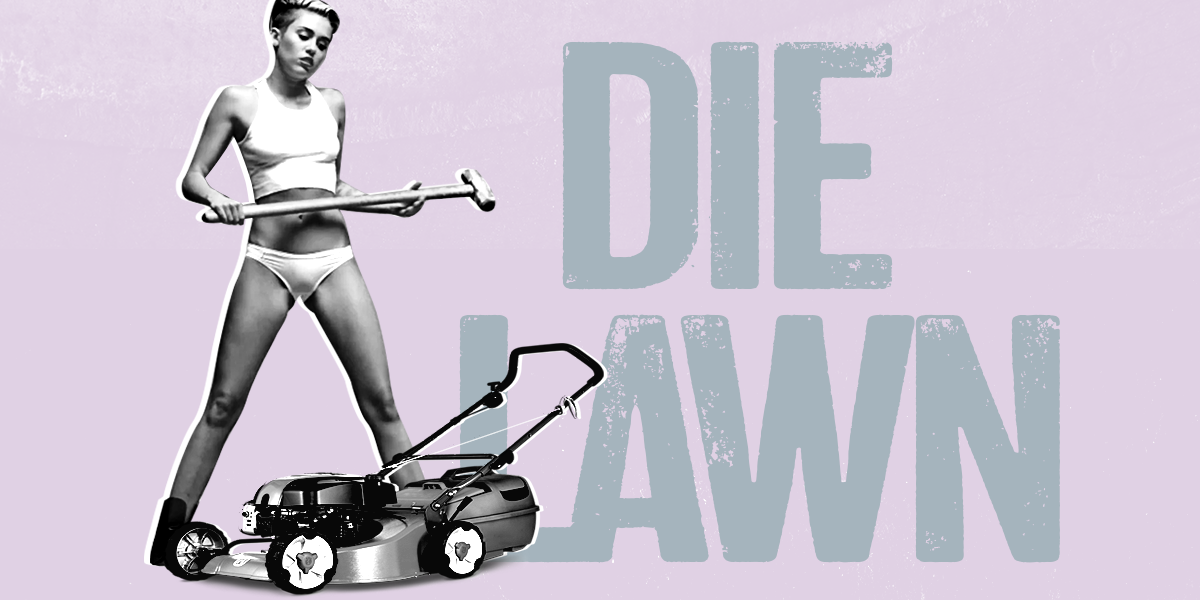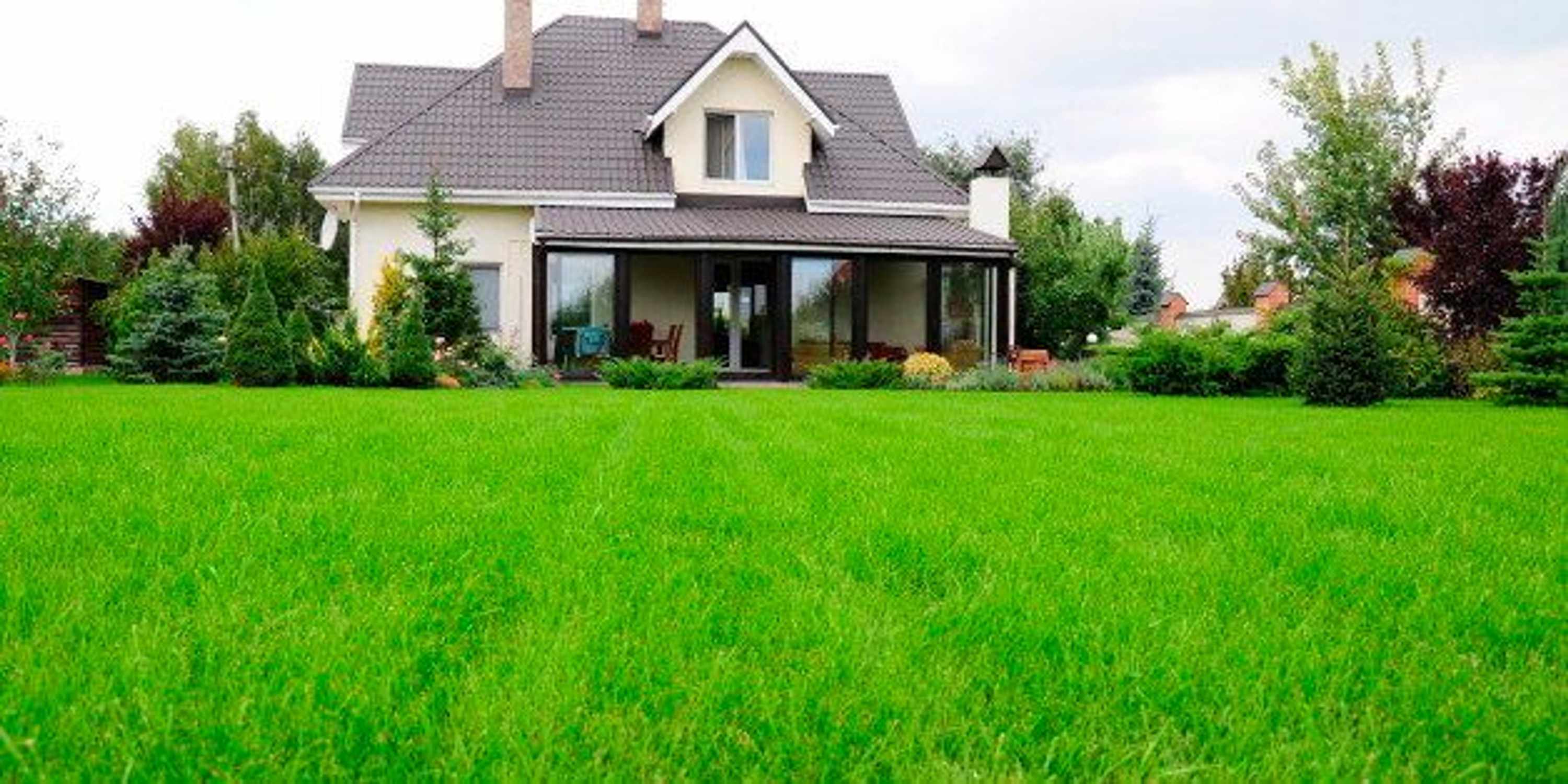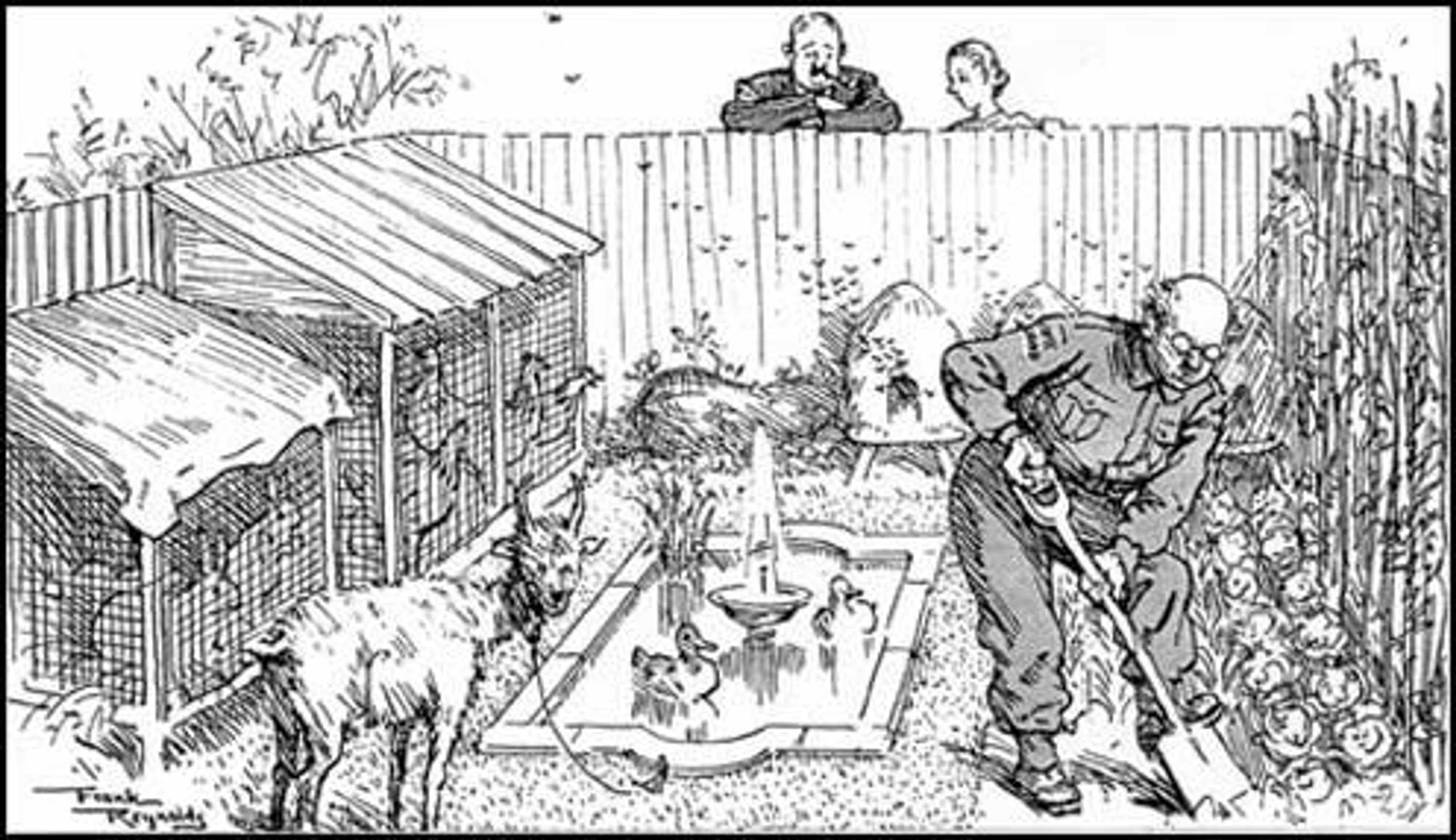Perfectly kept gardens don't bring you closer to nature, quite the opposite. Here's why the lawnmower must die
Perfectly kept gardens don't bring you closer to nature, quite the opposite. Here's why the lawnmower must die

Lawns are not a minor point.
Yuval Noah Harari in his global bestseller Homo Deus dedicates a chapter to the weird history of lawns – a status symbol that not only shows how much of the world an individual has conquered, but also how much spare cash they have to make it look pretty.
The trouble is, lawns cover a large area of our planet. They are ecologically unproductive and provide barely any habitat for wildlife. More than this they require constant inputs of fossil fuels in the form of pesticides, fertilizers and of course fuel in that dreaded machine of death – the lawnmower.
The strange cultural artifact of the lawn started to transform land in the Middle Ages, when French and English aristocrats put neat squares of grass outside the front of their castles. The lawn was an elaborate indicator of wealth and status.

Glengorm Castle in Scotland
Harari writes -
"Well-kept lawns demanded land and a lot of work, particularly in the days before lawnmowers and automatic water sprinklers… In exchange, they produce nothing of value. You can't even graze animals on them, because they would eat and trample the grass."
As history progressed new elites emerged in the form of entrepreneurs, industrialists and the bankers and lawyers serving the new global economy. They wanted lawns too. After the industrial revolution, when the middle class emerged this new social strata was keen to emanate elites. As suburbia sprawled out over pristine wild lands each new home came with its own little patch of lawn. As the human population has exploded the patches add up to a calamitous waste of land contributing to the devastating loss of habitat eradicating wild species.

The suburban lawn is expensive, wasteful, and bad for the environment
Another critically acclaimed author, Michael Pollan, who wrote The Omnivore's Dilemma and How to Change Your Mind wrote a seminal and often quoted article on the topic way ahead of its time called - Why Mow? The Case Against Lawns. He writes -
“Nowhere in the world are lawns as prized as in America. In little more than a century, we’ve rolled a green mantle of grass across the continent, with scarcely a thought to the local conditions or expense. America has more than 50,000 square miles of lawn under cultivation, on which we spend an estimated $30 billion a year”
It is perhaps worth noting here that a scientific paper published in Science magazine in 2012 estimated we could conserve global biodiversity for $76 billion. As the natural world collapses around us, the lawn may be an elaborate wealth indicator we can no longer afford.
Many commentators have urged society to ramp up to a war-like level of focus and effort to reverse climate change and The Sixth Mass Extinction. Interestingly, there is a precedent, in The Second World War English people were urged to “Dig For Victory” and turn every available scrap of land into food growing for the war effort. Clearly such ambition is also what we need now - reducing food miles, increasing self sufficiency and creating an abundance of fresh, healthy, seasonal food close to human habitations.

It does not make sense for rich countries to demand that less developed countries in the Global South keep their forests standing when we are importing agricultural commodities from them that we could have grown ourselves locally but chose not to because of our love of ornamental little patches of grass. The crops they grow for our markets replace the forests we need to sustain life on Earth.
Vegetable patches, allotments, orchards and all forms of regenerative agriculture provide much more habitat for wild species like endangered butterflies and hedgehogs then do lawns whilst also massively reducing the ecological impact of food production. An effective response to global ecological breakdown requires us to change the way we use land, not just in distant, exotic places, but also immediately around where we live.
The Royal Botanic Gardens in Kew has launched its Grow Wild project urging people to create wildflower meadows in place of lawns. Pestival - the festival that celebrates insects urges people to help in anyway they can - including stopping using all weed killers in their gardens and leaving a mess of leaves and other natural debris which makes habitat for these crucial critters.
Planet earth was once totally forested. In the vast expanse of trees an extraordinary diversity of creatures slithered, squirmed, hooted, howled, danced and dreamed. Human's catastrophic and devastating assault on nature has removed half of these trees and destroyed 83% of wild mammals. The blades of the lawnmower are the precise spot where the industrial machine cuts back the wild world we need to survive.
Every human being alive today shares responsibility for our planetary home. Every patch of land we can engage with is either sacred or desecrated. What we do with this land defines us and determines the world our children inherit. If you walk outside and religiously chop back the regrowth of the wild world you are determinedly pushing forward death, wildfires, famine, mass migration and ultimately extinction.
When challenged to reduce or remove lawn area, most people will claim they maintain a lawn (with a not inconsiderable investment of energy, time and money) so their kids have somewhere to play. This is disingenuous. Kids can play on lawns. Kids can also play under trees, in orchards and wildflower meadows and even around vegetable patches. It is also obviously possible to maintain large shared-access lawns in parks and sports fields so that communities have access to grass for the games that really need it - like tennis and football.
Is it time to sabotage all lawnmowers?
If you are in a household with a nature killing machine (lawnmower) - do the world a favour - destroy it. Don’t give it away so someone else repeats the carnage. Those rotating blades are the front line of the war against nature. They must be fully decommissioned now for the advancement and sustenance of our civilization.
If your neighbour has a lawnmower talk to them. Urge them to change their attitude to the biosphere that supports us. If they won’t listen - sabotage their machine. We are out of time. It is now or never. The age of lawns was a tragic and idiotic aberration. The lawnmower must die.
In the new ecological age, our calling is clear - plant trees.
***
Things we can do:
- Plant wildflowers which support bees and other wildlife - see - Grow Wild
- Learn about insects and how gardens can create the habitat they need - see - Pestival
- Learn how to grow huge amounts of food in a small garden - see - Charles Dowding
- Join the dots between industrial agriculture and the destruction of exotic ecological hot spots - see - Compassion in World Farming
- Get involved in tree planting - see - The Woodland Trust or Trees for Cities
- Join Treesisters

Cartoon on the Dig for Victory campaign (June, 1943)


